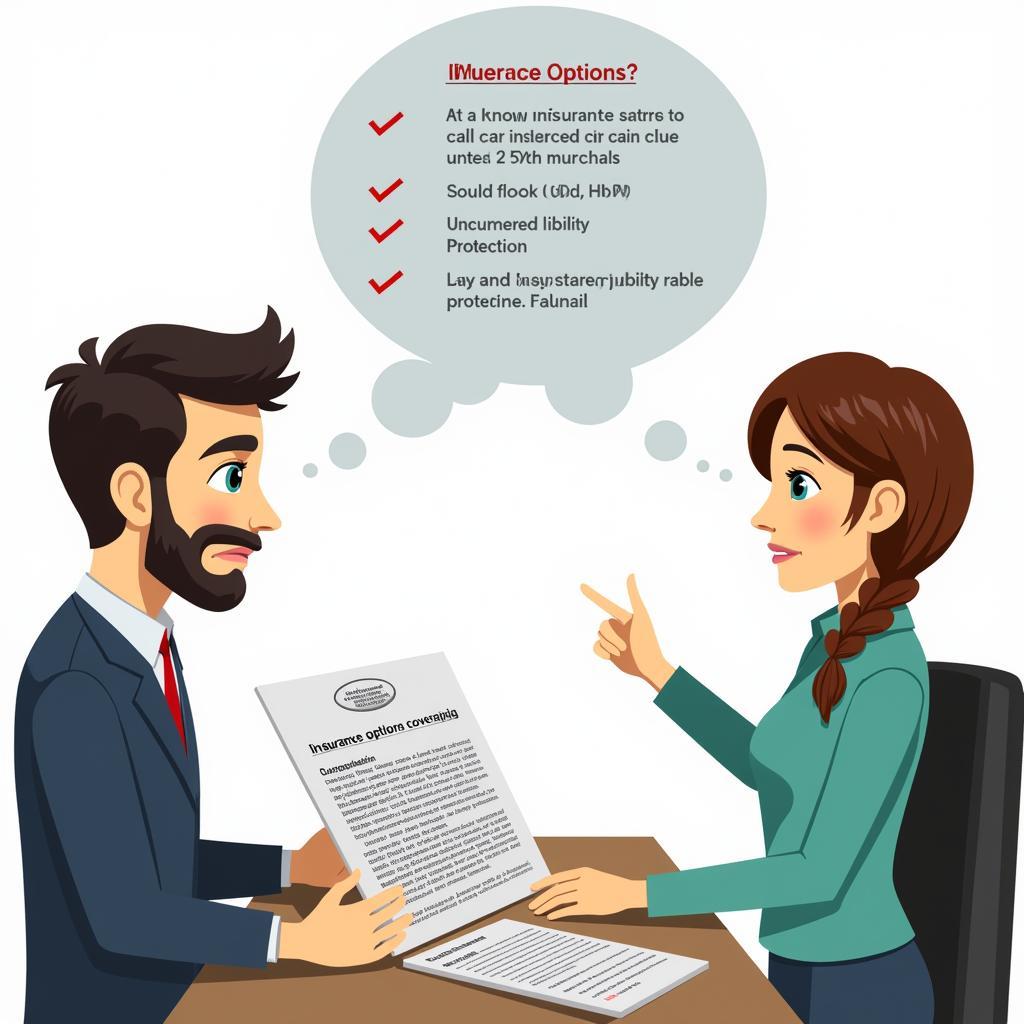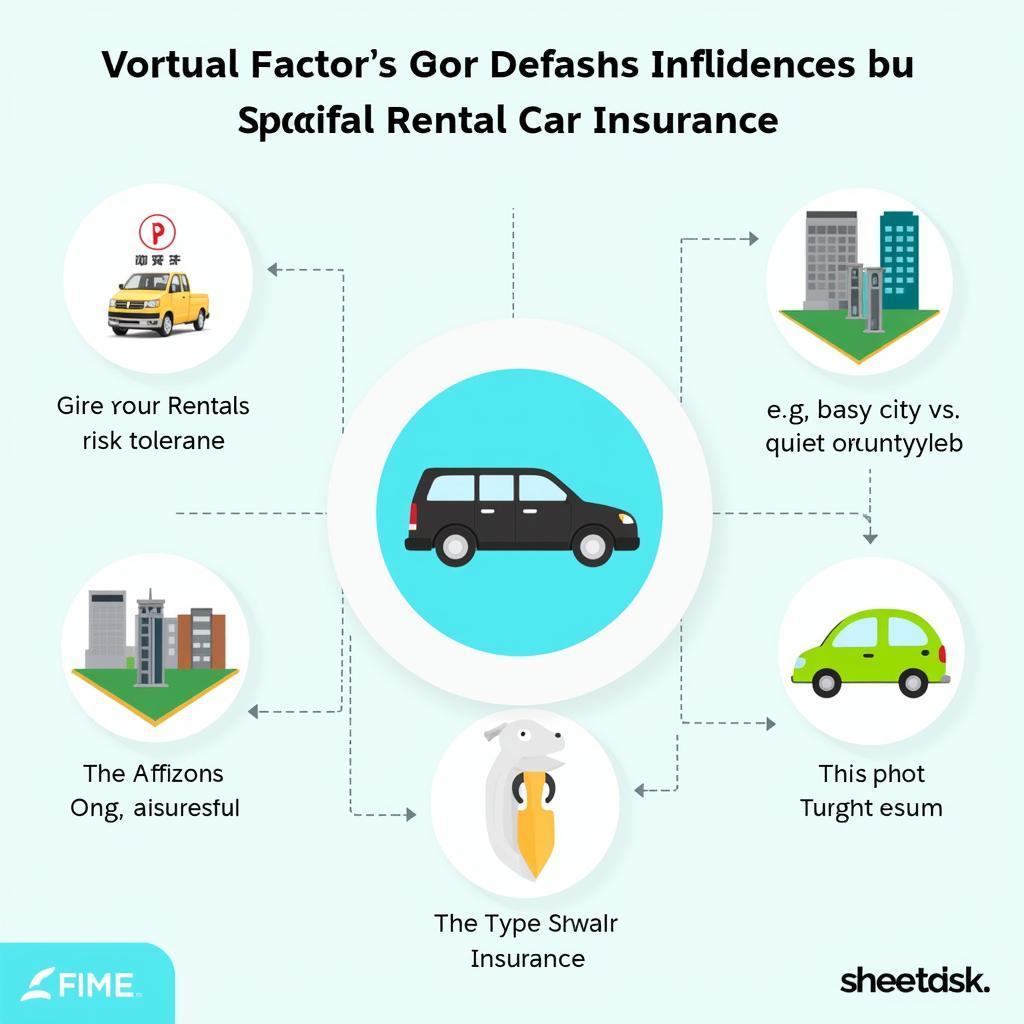Should I Get Damage and Collision Service with Rental Car?
Renting a car can be stressful, especially when considering damage and collision service. Should you pay extra for it? This article delves into the complexities of rental car damage and collision waivers, helping you make an informed decision that fits your needs and budget.
Choosing whether to opt for damage and collision service for your rental car is a crucial decision that can significantly impact your trip’s overall cost and peace of mind. Understanding the nuances of these waivers, your existing insurance coverage, and the potential risks involved is essential. This guide will provide a comprehensive overview to help you answer the question: Should I Get Damage And Collision Service With Rental Car? We’ll cover everything from deciphering insurance jargon to assessing your individual risk tolerance.
Understanding Damage and Collision Waivers
Damage and collision waivers, often referred to as Loss Damage Waivers (LDW) or Collision Damage Waivers (CDW), are not technically insurance policies. They are optional waivers that protect you from financial responsibility for damages to the rental vehicle, regardless of fault, in most cases. However, there are often exclusions, such as damage to tires, undercarriage, or loss of keys.
It’s important to note that the terminology can be confusing. What one company calls an LDW, another might call a CDW. Always clarify what the waiver covers with the rental company. This will save you from unexpected costs and ensure you are adequately protected. Find out more about comprehensive coverage options at what is full service option for rental car.
Should you always buy the damage waiver? Not necessarily. Your existing auto insurance policy or credit card may already offer similar coverage.
 Rental Car Damage and Collision Insurance Options
Rental Car Damage and Collision Insurance Options
Evaluating Your Existing Coverage
Before opting for the rental company’s damage and collision service, check your personal auto insurance policy. Many policies extend coverage to rental vehicles. Contact your insurance provider to understand the extent of your coverage and any limitations.
Similarly, some credit cards offer rental car insurance benefits if you use the card to pay for the rental. These benefits can vary significantly between card issuers, so review your card’s terms and conditions or contact your card company directly. Understanding your existing coverage can often negate the need for purchasing additional waivers. You can learn about different car rental services at what car rental service will deliver.
Factors to Consider When Making Your Decision
Several factors influence whether you should purchase damage and collision service:
- Your Risk Tolerance: Are you comfortable with the potential financial burden of repairing or replacing a damaged rental vehicle?
- Rental Location: Driving in unfamiliar territories might increase your risk of accidents.
- Rental Duration: Longer rentals increase the likelihood of incidents.
- Vehicle Type: The cost of repairing or replacing a luxury or specialty vehicle is significantly higher than a standard car.
Considering these factors can help you assess your individual risk and make an informed decision. Should i get damage and collision service with rental car? The answer is personal and depends on your specific circumstances.
 Factors Affecting Rental Car Insurance Decision
Factors Affecting Rental Car Insurance Decision
Deciding on the Right Coverage
“Understanding your existing coverage is paramount,” says John Smith, Senior Automotive Insurance Advisor at XYZ Insurance. “Many drivers unknowingly duplicate coverage, incurring unnecessary expenses.”
Once you’ve assessed your existing coverage and risk tolerance, you can confidently decide whether to purchase the rental company’s damage and collision waiver. It’s crucial to compare the cost of the waiver against your potential out-of-pocket expenses in case of an accident.
If you’re unsure about specific terms, don’t hesitate to ask the rental company for clarification. It’s better to be well-informed than face unexpected charges later. Sometimes understanding the meaning of specific car terms can be helpful, like what does service air bag mean in a car. This knowledge will empower you to make informed decisions. You can also find more information on car rentals at am service car rental.
Conclusion
Deciding whether to get damage and collision service with a rental car requires careful consideration of your individual circumstances, including existing insurance coverage, risk tolerance, and the specific terms of the rental agreement. By understanding these factors, you can make a well-informed decision that protects you financially and provides peace of mind during your travels. Remember, a well-informed consumer is a protected consumer.
FAQ
-
What is a Loss Damage Waiver (LDW)? An LDW is a waiver that releases you from financial liability for damage to the rental car.
-
Does my credit card cover rental car damage? Some credit cards offer rental car insurance benefits, but coverage varies. Check your card’s terms.
-
What are the exclusions in a typical damage waiver? Exclusions often include damage to tires, undercarriage, or loss of keys.
-
Should I get the damage waiver if I have my own car insurance? Check your policy; it may already cover rental cars.
-
How do I know if I need the coverage? Consider your risk tolerance, rental location, rental duration, and vehicle type.
-
What is the difference between LDW and CDW? The terminology varies between rental companies, so always clarify what’s covered.
-
Where can I find more information about car insurance companies? Find helpful resources at which car insurance company has the best customer service.
Contact Us
For any assistance, please contact us via WhatsApp: +1(641)206-8880, Email: [email protected] or visit us at 456 Oak Avenue, Miami, FL 33101, USA. Our customer service team is available 24/7.

